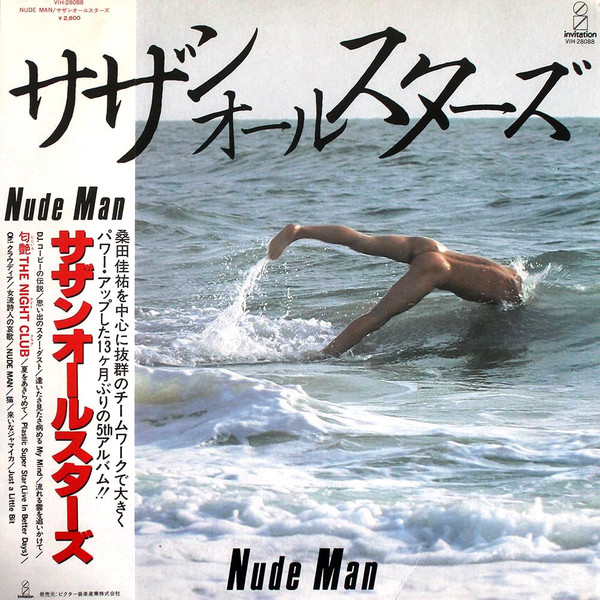Fans of Rankin might recognize him for his work in 80s anime soundtracks or as the composer for the Japanese theme songs to the hit SEGA CD game Sonic CD, but back in the '60s, he was already a distinguished songwriter and studio musician who's toured with bands like The Guess Who, Vanilla Fudge, and Leslie West's Mountain. However, the excessive lifestyle of the music scene in the states was taking a toll on his mental and physical health and decided to go on a hiatus in which he moved to Japan in 1971. While in Japan, he began a one-year intensive program of zen in a temple located near Yokohama, which completely refreshed him as he returned to his songwriting career in 1976, with his short stint with the band, Short Hope.
SHOGUN's next project would be for the soundtrack for another popular detective show simply known as Detective Story (Tantei Monogatari/探偵物語), staring actor Yūsaku Matsuda, who would serve as the inspiration for Cowboy Bebop protagonist, Spike Spiegel. They composed the main opening and closing theme songs for the show, "Bad City" and "Lonely Man", which would be featured as singles on their second album, Rotation. The album was produced by Noriko Iida (飯田倫子) who was responsible for producing many records by prolific jazz-fusion composer, Yuji Ohno(大野雄二) famous for his work in the Lupin III anime series. It also features the musical talents of saxophonists Jake H Concepcion and Eiji Toki, as well as drummer Atsuo Okamoto(岡本郭男), who at the time was also part of the Brass-rock band, Spectrum.
THE MUSIC
- As Easy As you Make It ⭐⭐⭐⭐
- Imagination ⭐⭐⭐⭐
- Sailor-Sailor ⭐⭐⭐
- Yesterday, Today And Tomorrow ⭐⭐⭐⭐⭐
- Margarita ⭐⭐⭐⭐
- Bad City ⭐⭐⭐⭐⭐
- The Tourist ⭐⭐⭐
- I Should Have Known Better ⭐⭐⭐⭐
- Lonely Man ⭐⭐⭐⭐⭐
THE VERDICT
Seems like whatever band Fujimaru is a part of, he knows how to make cool music. For their second album, SHOGUN goes for a sound that's a cross between Doobie Brothers and Chicago, a smooth & jazzy soft-rock sound backed by an in-your-face brass section, with the occasional dip into country. Yoshino & Rankin have this Michael Mcdonald & James Ingram dynamic going on where their voices sound so similar, they complement each other really well. Each song sounds like it could have been the theme song of a 70s TV show, or at least part of a soundtrack to a movie. Two of them literally are TV songs, and they're the best songs on the album.
"Bad City" definitely has that cop show vibe to it, the piano opening definitely makes you feel like you're entering a cantina in a shady part of the city, then it shifts into a rock & roll boogie number and suddenly you feel like you in the middle of a bar fight or a shoot out. "Lonely Man" is a badass shuffle straight out of Boz Scaggs' Middle Man. The other songs on here are great too like the jazzy vaudeville-inspired The Tourist about a Japanese tourist's unlucky experience at the airport, the appropriately named tropical yacht rock piece, "Margarita", or the somber counter-top blues number "Yesterday, Today And Tomorrow".
Overall, Rotation is a great album for those who are looking for a more cinematic approach to City Pop and is a great example of SHOGUN at its peak. If you want to learn more about their bandleader, Casey Rankin, YouTuber Mercury Falcon did an excellent video about his life & work.





